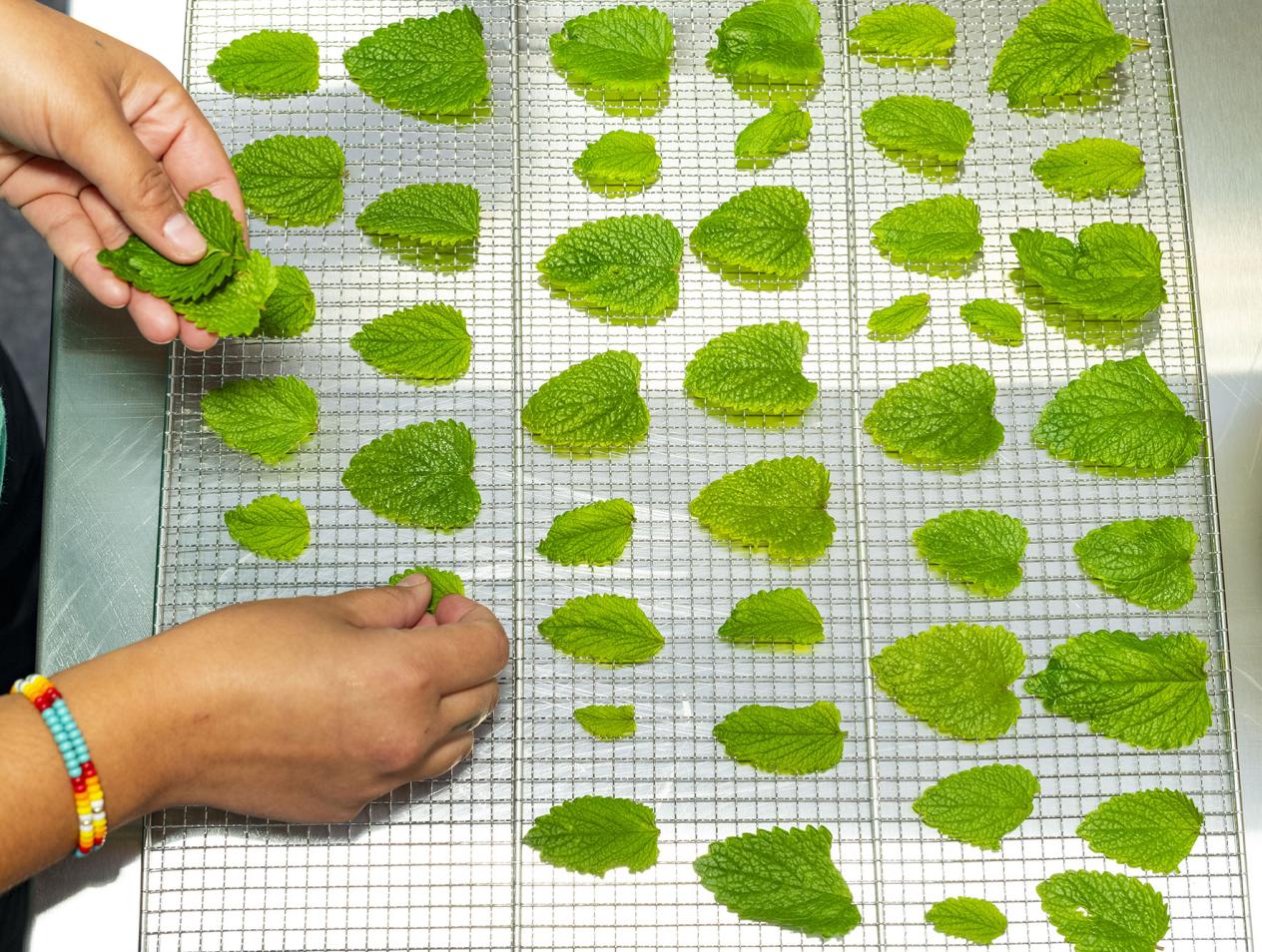Breadcrumb
About us
The Rou Dalagurr Food Sovereignty Lab & TEK Institute is a space to facilitate research with Indigenous input that foregrounds Tribal autonomy and self-determination. This lab is about ensuring Indigenous sovereignty is upheld, and that Indigenous communities maintain self-determination over how their knowledges are approached, researched, engaged with, represented, and managed.
Community voice and representation is prioritized in this lab. Indigenous knowledge is not a monolith, and traditional ecological knowledges are specific to each originating community- these knowledges are localized and place-specific. As such, they need to be housed and represented with and by those communities.
History
In 2019, Cal Poly Humboldt Students in the Dr. Cutcha Risling Baldy’s Indigenous Natural Resource Management course had a vision for a project that would re-Indigenize the campus while bringing lasting benefits to the community, building partnerships across campus, and reconnecting students with place.
These student-youth represented 12 different majors from the College of Arts, Humanities & Social Sciences and the College of Natural Resources & Sciences. Students worked collaboratively during the semester to interview Native faculty and staff on campus, Native students, and also held a community stakeholders meeting to discuss the implementation of a Food Sovereignty Lab and Cultural Workspace at Humboldt. This research was subsequently awarded second place in the Social Sciences Graduate Research division of the CSU Student Research Competition in April 2020. The project envisioned was the Cal Poly Humboldt Native American Studies (NAS) Rou Dalagurr Food Sovereignty Lab and Traditional Ecological Knowledges Institute (FSL). To learn more about how this research started watch the linked video: Telling the Story of the NAS Food Sovereignty Lab & Cultural Workspace.
The Food Sovereignty Lab broke ground on October 8th 2021, following a student-led effort which raised over $250,000. The lab is dedicated to the learning, research, hands-on practice and preservation of food sovereignty and Traditional Ecological Knowledges. The purpose of the FSL is to provide an opportunity to work directly with the surrounding communities, tribal nations, and national and international scholars and community leaders to center, learn, and engage with Indigenous science, environmental management, and preservation practices. The lab is working to build national and international connections that foreground Indigenous voices in rigorous academic research, publications and community-centered programming, connecting youth to higher education, policy development, economic development, and climate resiliency.
Leadership
Our lab includes a Steering Committee which has representatives appointed by each of the tribal nations in Humboldt/Del Norte Counties, as well as multiple student & community based organizations, nonprofits, and governmental agencies. The Steering Committee reviews lab policies and procedures and provides feedback on projects and programs. The Steering Committee is also working to provide insight and partnership building with other organizations, institutes, institutions and businesses interested in engaging with Food Sovereignty and TEK. The Lab publishes bi-annual reports, that are publicly available and include information about budget; operations; program and project updates.
The work of the Rou Dalagurr Food Sovereignty Lab & TEK Institute align with Humboldt’s vision of a twenty-first century polytechnic (or polyTEK) institution. According to the Polytechnic Prospectus, the university seeks to be a “model and leader for others across the country and globe”, and “believe[s] in working directly with tribal communities.” Rou Dalagurr incorporates hands-on experience for students by training them to engage with tribal communities, while also appealing to students which will help with recruitment, enrollment, and retention through programs that can serve as a model to others throughout the world.
What is Food Sovereignty?
To fully understand food sovereignty, one must understand the history of the impacts of colonization on the Indigenous nations of this region. Genocide was carried out by severing the connection between people and their culture. Forced separation of native people from their traditional food sources was a political goal to enact genocide against those communities, as “disrupting Native relationships with the land ‘not only created physical hardship’ but ‘also bankrupted many meaning structures that informed identity and mechanisms of socio-cultural reproduction and control’”. As stated in the Declaration of Nyéléni, there are six proposed principles of food sovereignty: focusing on food for people, valuing food providers, localizing food systems, making decisions locally, building knowledge and skill, and working with nature.
According to Dr. Cutcha Risling Baldy and Dr. Kaitlin Reed, the Co-Directors of the Food Sovereignty Lab, food sovereignty is also about centralizing Indigenous voices in how we collectively move forward in building sustainable food systems. Therefore, the revitalization of traditional food sources through Indigenous food sovereignty is critical to how we build food sovereignty in our region and beyond, while also reawakening and healing Native relationships with the land.
What We Do
- Develop curriculum, internships, research opportunities, workshops, and programs
- Provide space that supports basket weaving, food preparation, and regalia making
- Strengthen the bond between our local community, Indigenous Nations, and students at Humboldt
- Integrate the values of ecological sustainability, bio-cultural sovereignty of Indigenous peoples, interconnectedness of life, and community involvement in efforts to develop reverence for food sovereignty






